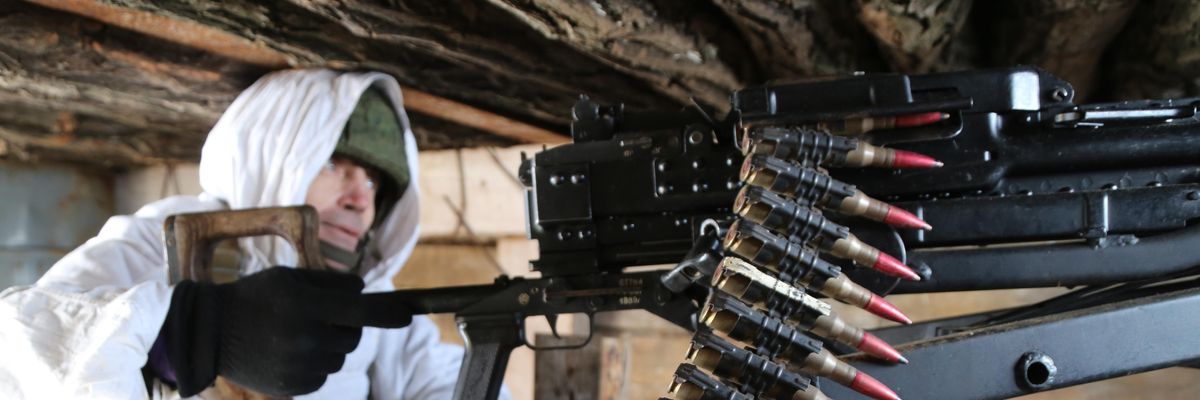Global crises abound--escalating war in Yemen, potential famine in Afghanistan, rising tensions on the Korean Peninsula, and uncertain prospects for a U.S. return to the Iran anti-nuclear deal. All of these challenges require skillful diplomacy, and that urgently applies to the situation in Ukraine.
Approving a half billion dollars in emergency appropriations for military weapons while failing to pass vital and needed funding for U.S. communities, as in the Build Back Better bill, would be shameful.
As PresidentJoe Biden has ordered 8,500 U.S. troops in the region to be on high alert, Congress may rush through, as soon as next week, a massive defense package including a staggering $500 million grant for new weapons for Ukraine, which would make it the third-largest recipient of military aid. Congress is planning on rushing this bill through without committee "markup" and it could be voted on soon.
Throwing a half-billion dollars in military aid at Ukraine will not resolve the conflict--on the contrary, it could escalate it. As one congressional aide put it, "This is how the space for nonmilitary options gets slowly closed off in Washington." The bill also piles sanctions on Russia without fully examining how those sanctions might impact innocent Russian civilians. At the same time, the bill represents yet another half-billion dollars gift to weapons manufacturers that could instead be spent on threats here at home like the pandemic and climate change.
Diplomacy and de-escalation are the urgent priorities; we can't risk putting out the fire with gasoline. While seemingly no one wants war, mis-calculations could lead to catastrophe between nuclear-armed behemoths.
Nobody should oversimplify the current situation. Russia-Ukraine relations and history, as well as post-Cold War triumphalism by the U.S. and NATO toward Russia, have contributed to the crisis. But diplomacy, via the Minsk II process or other means, needs to be the only solution on the table, not militaristic threats or increased weapons transfers. The Minsk II agreement would, if implemented, demilitarize the eastern Donbass region of Ukraine and guarantee meaningful political autonomy to the region while retaining Ukrainian sovereignty over the area and its borders.
It is time to escalate diplomacy, not military aid. Congress and the administration should heed the call issued last summer by over 100 former U.S. officials and leading area experts who called for diplomacy-first approach instead of a "foreign policy arsenal reduced mainly to reactions, sanctions, public shaming and congressional resolutions." This approach would "address the deeper sources of mistrust and hostility" as the means to deter the current aggressive Russian military stance.
I had the honor to represent Peace Action on a citizen peacemaker delegation to Russia in 1997, and while I don't claim to be a Russia expert, it certainly gave me a sense of Russia's history and culture. I loved the people, art, architecture, music, ballet, language and food, and I also met some wonderful Ukrainians while I was there. As the musician Sting wrote poignantly at the height of the Cold War in the early '80s, anyone could see the Russians "love their children, too," as do Ukrainians, Americans, and all peoples.
Members of Congress should remember that and vote against H.R. 6470, the Defending Ukraine Sovereignty Act of 2022 (in the House of Representatives) and S. 3488 (Senate version) next week. Approving a half billion dollars in emergency appropriations for military weapons while failing to pass vital and needed funding for U.S. communities, as in the Build Back Better bill, would be shameful.

